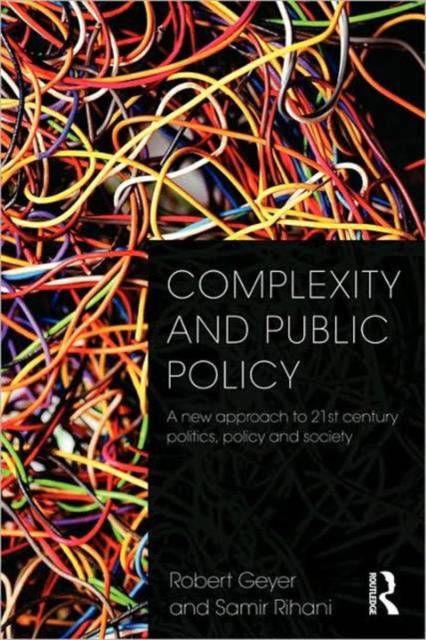
- Afhalen na 1 uur in een winkel met voorraad
- Gratis thuislevering in België vanaf € 30
- Ruim aanbod met 7 miljoen producten
- Afhalen na 1 uur in een winkel met voorraad
- Gratis thuislevering in België vanaf € 30
- Ruim aanbod met 7 miljoen producten
Complexity and Public Policy
A New Approach to 21st Century Politics, Policy and Society
Robert Geyer, Samir RihaniOmschrijving
This book provides a clear, concise and readable introduction to complexity thinking, its application to the social sciences and public policy, and the relevance of some of its various tools to those fields of politics, health, the international realm, development, planning and terrorism.
The authors argue that the foundation for many of the current crises in these areas can be traced to the attempt by social scientists and policy-makers to treat these systems and processes as fundamentally orderly, predictable and controllable. By providing an overview of complex systems, a practical introduction to basic concepts and tools of these systems, and examples for understanding and managing them in real life policy situations they provide an exciting new perspective for rethinking our basic approaches to the social sciences and for understanding and managing the increasingly interdependent world of public policy.
The book is vital reading for students and scholars of the social sciences and public policy, and also policymakers and the policy actor audience.
Specificaties
Betrokkenen
- Auteur(s):
- Uitgeverij:
Inhoud
- Aantal bladzijden:
- 232
- Taal:
- Engels
Eigenschappen
- Productcode (EAN):
- 9780415556637
- Verschijningsdatum:
- 19/05/2010
- Uitvoering:
- Paperback
- Formaat:
- Trade paperback (VS)
- Afmetingen:
- 156 mm x 234 mm
- Gewicht:
- 331 g

Alleen bij Standaard Boekhandel
Beoordelingen
We publiceren alleen reviews die voldoen aan de voorwaarden voor reviews. Bekijk onze voorwaarden voor reviews.











